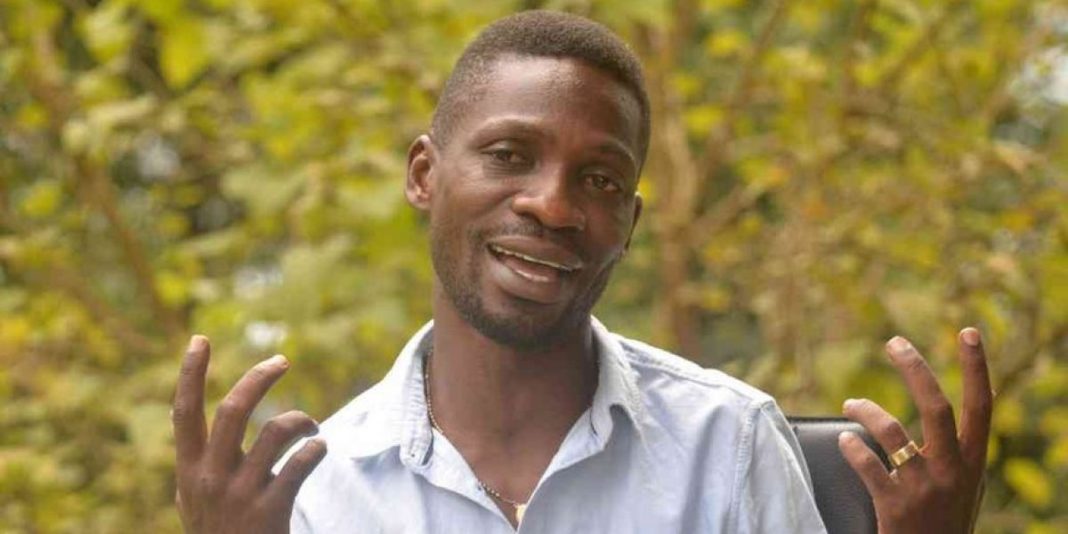By Robert Kyagulanyi a.k.a Bobi Wine
The past month has thrust Uganda into a rare spot on the front page of global news. At first glance, the reason seems unsettling: reports abound of torture, detentions, brutal repression of protests and crackdowns on freedoms. But look deeper, and this is a good news story.
After 32 years in power, President Yoweri Museveni’s government is for the first time shaking in its boots. Not because of me, not because of any opposition member, but because of the millions of young Ugandans who know they deserve better, and are now demanding better.
This is the cause that last year forced me out of the comfort of show business as a musician and into the political sphere. Growing up, I was never interested in politics. I was only an artiste doing my music. But as Museveni stayed longer and his corrupt regime started attracting scrutiny, his government became even more repressive, and the abuse of power became blatant.
I started feeling that no matter how much I achieved as an individual, I would not enjoy my dignity as a citizen if the political question was not resolved and the power returned to the people of Uganda.
The 12 months since have been the most trying of my life. For daring to advocate for a 21st century Uganda, I’ve been charged with treason, imprisoned and tortured. The injuries I’ve sustained have required medical care from specialists, but others, such as the Hon. Francis Zaake, have suffered even worse.
Since I traveled to the United States for medical care, the ensuing crackdown has gotten worse. Friends from the United States who are known to work with me on charity projects have been deported from Uganda. Many of our supporters have been kidnapped by some military operatives, brutalized and illegally detained. There is no peace in the ghetto. The military police maintains a 24-hour presence in every corner, waiting to harass anyone who protests against my mistreatment. These past few weeks, the world watched as security agencies responded to peaceful protesters and journalists in Kampala with heavy violence and cruelty.
I am fortunate enough to have a platform to bring attention to what is happening, but I have not seen the worst that this government can dole out. So many others have endured far worse at the hands of the state, some left permanently maimed, some not surviving to tell the tale, and all remaining voiceless. What happened to me is no aberration in today’s Uganda, which is why returning to my former life as a musician is no longer an option.
Museveni took power in 1986, on a day that was immediately termed “Liberation Day” in Uganda, but has since come to represent the exact opposite. Coming into office after a bloody civil war capping decades of tyranny, Museveni promised Ugandans change, development and democracy. Instead, he has brought us corruption, looting of public funds, systematic violations of human and civil rights, and — by abolishing term limits, and then the presidential age limit — an attempt at perpetual rule. He has become precisely what he fought against.
When people are allowed to speak, allowed to protest, to organize; when terms are limited and elections are transparent; when the press is free and officials are held accountable, there are no Musevenis. This is why we are seeing increasing censorship — including blackouts of broadcasts by Voice of America, among other heavy-handed attempts to keep Ugandans in the dark.
Ugandans who aren’t letting desperate attempts to silence them succeed. Ugandans who see peaceful transitions of power across the rest of the continent and wonder why they’re forced to live a century behind. Ugandans who read the news and see progress in international headlines and regression in domestic headlines. Ugandans who hear constantly about “Africa’s future,” and wonder whether they’ll be allowed to take part.
Those Ugandans are coordinating both online and in the streets like never before. They are organizing among themselves on social media, becoming amateur investigative journalists, exposing the brutality of the regime, fighting against nightsticks and rifles through tweets and petitions. They are following debates in parliament as they would Premier League matches, and the more their political consciousness develops, the more tenuous Museveni’s grip on power becomes.
It is no coincidence that the government last year banned my song, called “Freedom,” for that is exactly what Museveni sees as his greatest threat. True freedom for Ugandans — access to information, the right to a voice — would spell the end of this government. With every new crackdown, with every journalist arrested, with every protest quashed by gunfire, with every activist tortured, Museveni merely strengthens our resolve. The tides are shifting in Uganda.
Indeed, three-quarters of Ugandans have known no president but Museveni; we have the second-youngest population in the world. The country’s youth is rejecting the division that dictator after dictator has used to hold onto power. Provincialism and tribalism are becoming less powerful tools by the day. And the government is patently aware.
Most importantly, the change that Ugandans increasingly demand will be the first in our country’s history to come via the ballot box. Museveni may not have been the first leader to take power by force, but he will be the last.
And so, amidst the horrifying reports coming out of Uganda as the government becomes more desperate, know that this is ultimately a good news story. Young Ugandans are demanding change; they’re demanding freedom. And for the first time, it’s within reach.
Robert Kyagulanyi (“Bobi Wine”) is a musician and an independent Member of Parliament representing Kyaddondo East Constituency.




